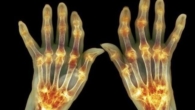
3 important facts about a heart attack you should know before it happens
0
A heart attack in women is the most insidious, it is less often diagnosed and noticed later!
Despite the fact that heart attacks and strokes are traditionally considered “male” diseases, women are just as likely to experience them. Moreover, because the symptoms of a heart attack in women differ from those in men, women are diagnosed later than men on average. In some cases, doctors may not even recognize the signs of an impending heart attack in women until it actually happens. Therefore, it is especially important to know the symptoms and see a doctor at the slightest suspicion. We have collected some facts about heart attacks that are important to know before you have to face one.
When should you see a doctor?
The only possible answer in this case: as soon as possible. Most deaths occur within the first hour after a heart attack, so it is important to call a doctor as soon as possible. Most likely, you know the most common signs of a heart attack: chest pain, shortness of breath, a feeling of discomfort in the center of the chest, pain “radiating” to the arm or back. However, it is important to remember that a symptom of a heart attack can be pain in the stomach area (reminiscent of an attack of gastritis), pain in the jaw, neck, shoulders, as well as a feeling of anxiety or fear. Do not wait until it passes and especially do not try to relieve the pain with pills – call a doctor immediately. And remember that in the event of a heart attack, every minute is precious.
Do you necessarily feel chest pain during a heart attack?
No. This is the most common, but not necessarily, sign of a heart attack. Moreover, it is in women that heart attacks most often occur without acute chest pain, accompanied only by a feeling of discomfort or mild pain.
Is it possible to have a heart attack and not know about it?
Unfortunately, yes. You are at risk if you suffer from diabetes, but a “silent” heart attack can happen to anyone. The most common symptoms of such a heart attack are nausea, shortness of breath, or weakness. If you know that your heart is not entirely healthy, you should pay special attention to such symptoms and consult a doctor immediately.









Leave a Reply